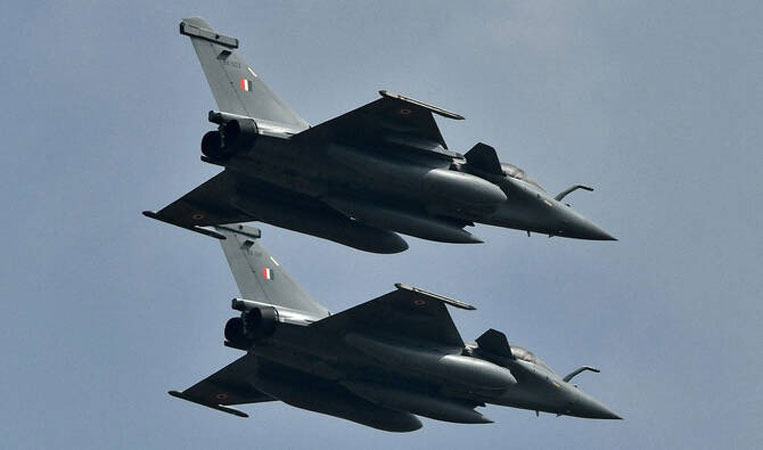India partners with French firm to build fighter jet engines

Strategic Collaboration for Indigenous Fighter Jet Development
India is making significant strides in its defense sector by collaborating with a French company to develop and manufacture fighter jet engines within the country. This initiative was highlighted by Defense Minister Rajnath Singh, who emphasized the importance of enhancing India's indigenous defense capabilities.
In May, Singh approved the prototype of the 5th generation Advanced Medium Combat Aircraft (AMCA), which he described as a "significant push towards enhancing India's indigenous defense capabilities." During a speech at a conference in New Delhi, Singh provided further details about the development of fighter jet aircraft engines in India.
"We are moving forward to manufacture aircraft engines in India itself," Singh stated, according to reports from Indian media. He also mentioned that India is collaborating with a French company to start engine production in the country. Although the specific company was not named, Indian media widely reported that the company in question is Safran, a well-established player in the aviation and defense sectors in India.
Despite the lack of immediate confirmation, the collaboration marks a crucial step in India's efforts to reduce its reliance on foreign arms imports. As one of the world's largest arms importers, India has prioritized the modernization of its military forces and has consistently pushed for increased local arms production.
In recent years, India has strengthened its defense cooperation with Western countries, including participation in the Quad alliance with the United States, Japan, and Australia. This strategic partnership has been instrumental in bolstering India's defense capabilities and fostering technological exchange.
India's commitment to strengthening its defense industry is evident through several key developments. In April, the country signed a multi-billion-dollar deal to purchase 26 Rafale fighter jets from France's Dassault Aviation. These jets will join the existing fleet of 36 Rafale fighters, replacing the Russian MiG-29K jets. This acquisition underscores India's growing defense ties with France and its focus on acquiring advanced military technology.
Additionally, Singh has pledged at least $100 billion in fresh domestic military hardware contracts by 2033 to further stimulate local arms production. This ambitious target reflects India's long-term vision for self-reliance in defense manufacturing.
Over the past decade, India has made remarkable progress in expanding its defense infrastructure. The country has launched its first domestically made aircraft carrier, developed warships and submarines, and conducted a successful long-range hypersonic missile test. These achievements highlight India's growing technological prowess and its commitment to maintaining a strong national defense.
New Delhi remains vigilant against threats from multiple nations, particularly Pakistan. The two countries have experienced tense relations, with a four-day conflict in May marking their worst standoff since 1999. This conflict underscores the ongoing security challenges that India faces and reinforces the need for continued investment in defense capabilities.
Through strategic collaborations, technological advancements, and a focus on indigenous production, India is positioning itself as a formidable force in the global defense landscape. The nation's efforts to build a robust and self-sufficient defense industry are not only critical for national security but also essential for its broader geopolitical ambitions.

Comments
Post a Comment